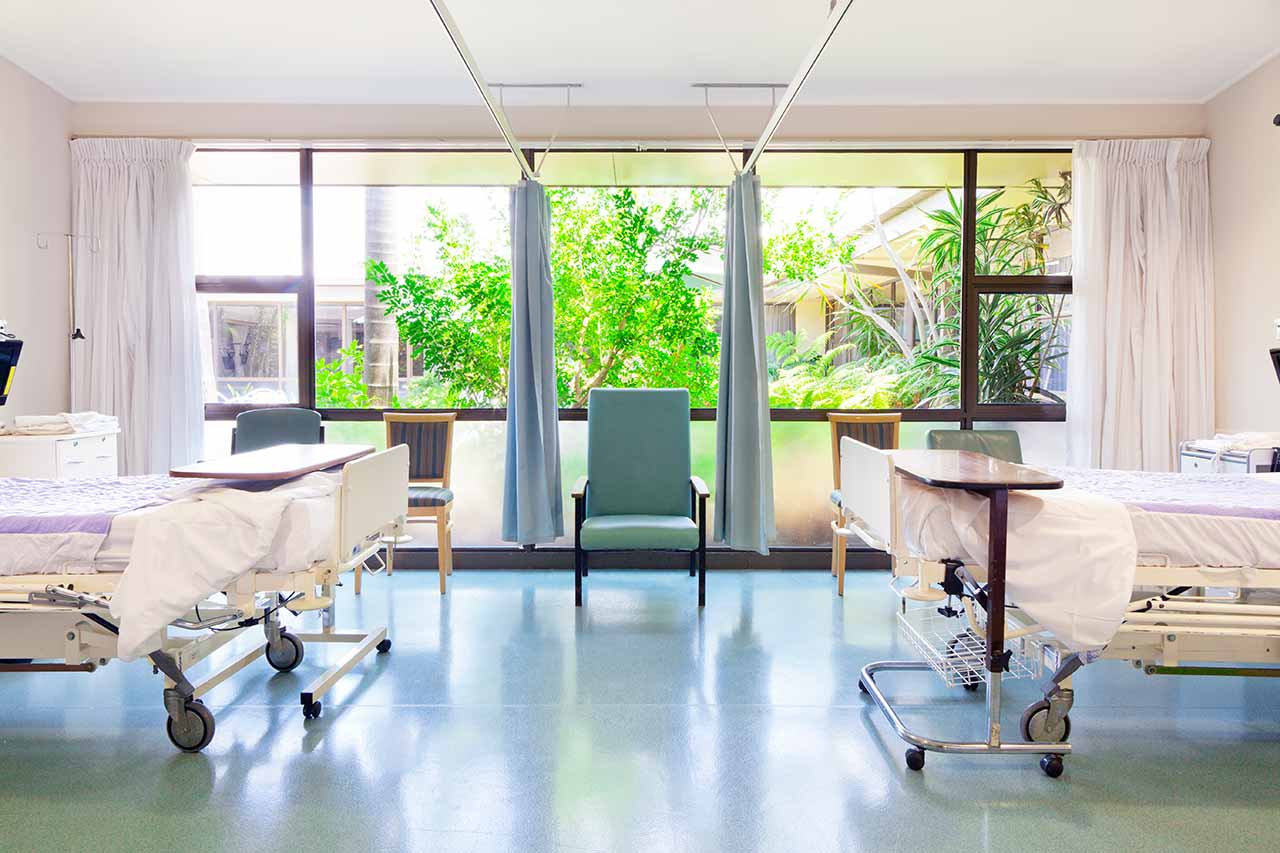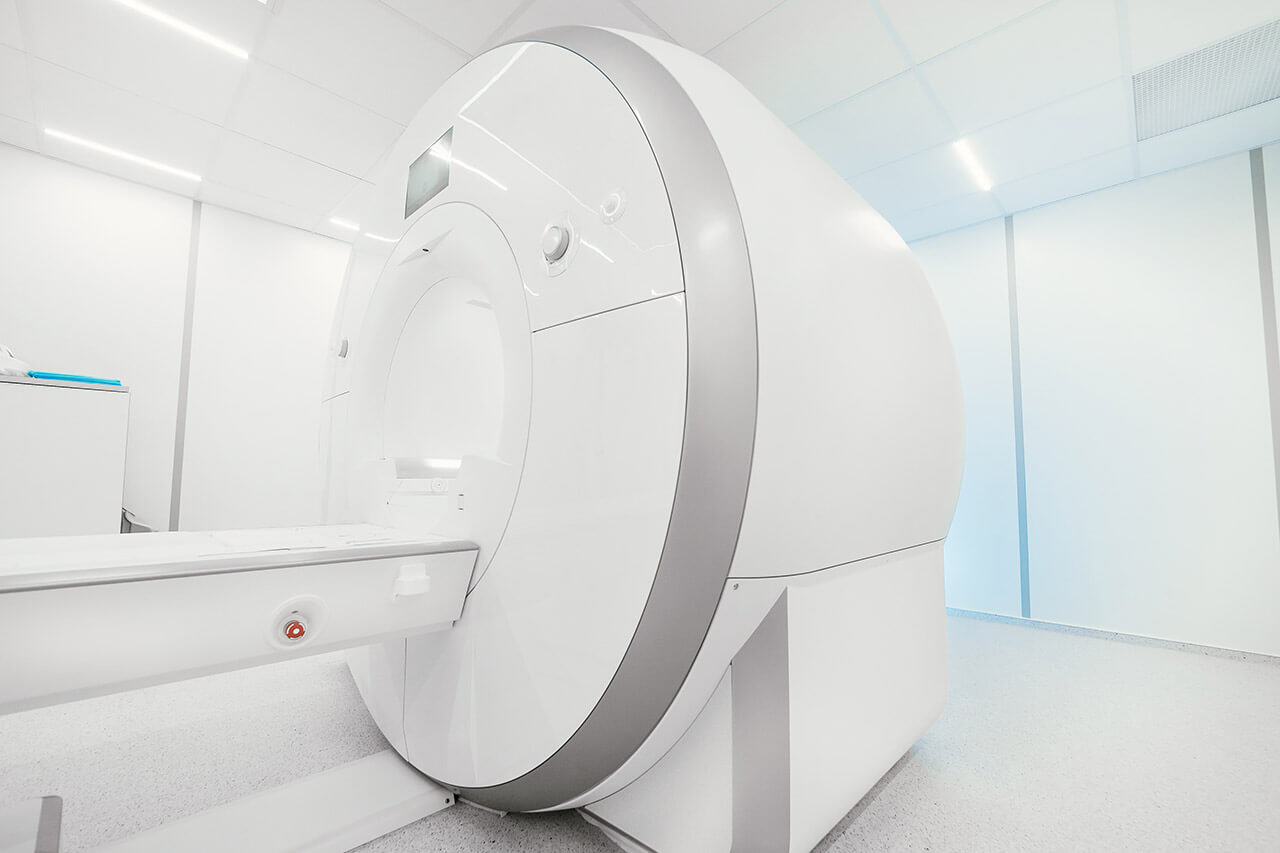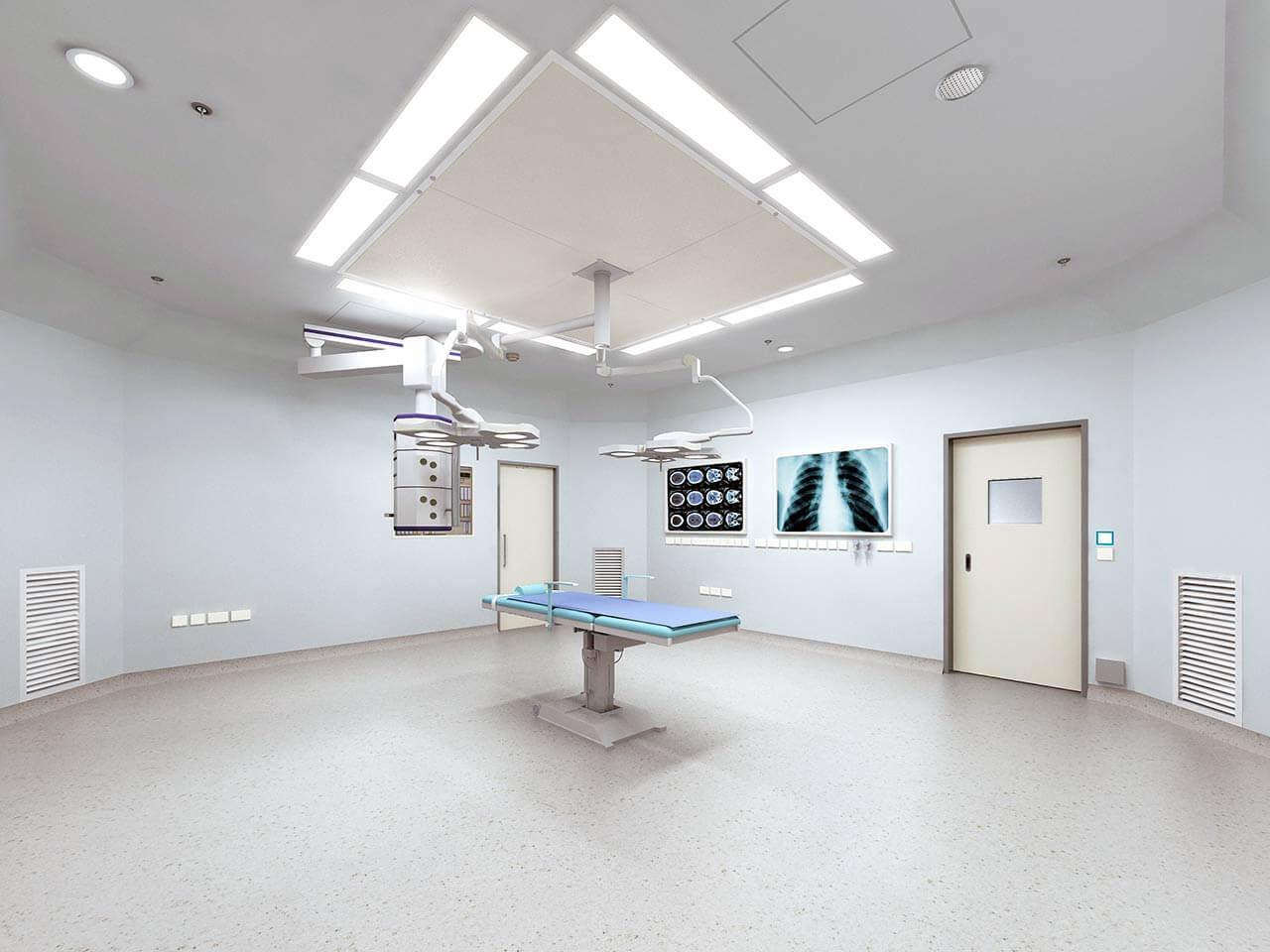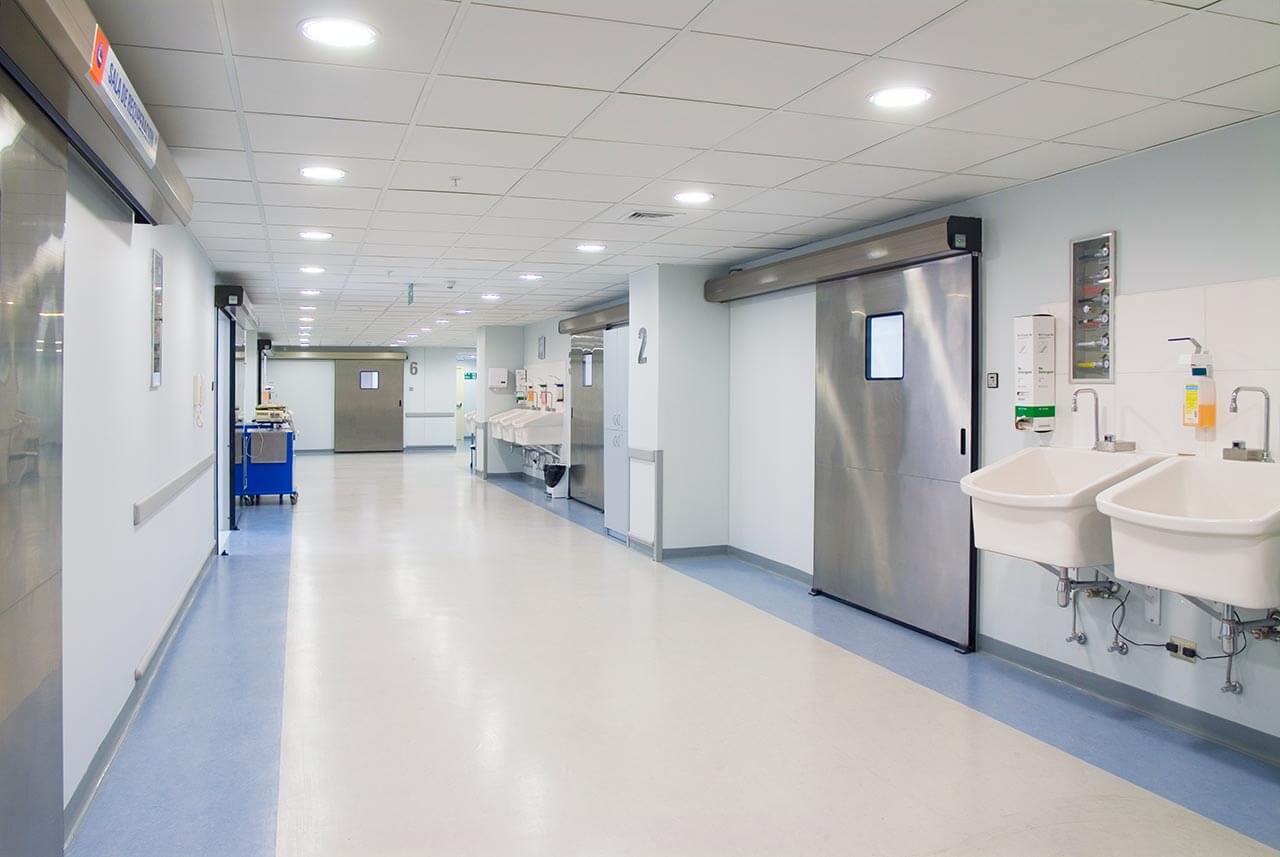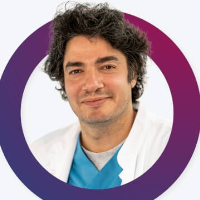
The program includes:
- Initial presentation in the clinic
- clinical history taking
- review of medical records
- physical examination
- laboratory tests:
- complete blood count
- biochemical analysis of blood
- inflammation indicators (CRP, ESR)
- indicators of blood coagulation
- TSH-basal
- chest X-ray examination
- electrocardiogram (ECG)
- measurement of arterial blood pressure
- conducting 1 course of chemotherapy
- symptomatic treatment
- the cost of essential medicines and materials
- nursing services
- consultations of related specialists
- elaboration of individual treatment plan
How program is carried out
During the first visit, the doctor will conduct a clinical examination and go through the results of previous laboratory tests and instrumental examinations. After that, you will undergo an additional examination, including laboratory assessment of liver and kidney function, ultrasound scan. Based on the received results, the doctor will elaborate the chemotherapy regimen. If necessary, related medical specialists will be involved in the elaboration of a treatment regimen (tumor board).
Chemotherapy is carried out as the day hospital procedure, without mandatory admission to the hospital. After the placement of a venous catheter, you will stay in a comfortable ward. An infusion system will be connected to the catheter, through which the required drug or a drug combination will be administered. All drugs are administered by intravenous drip, slowly, so the total duration of the infusion can be up to several hours. All this time, doctors and nurses will monitor your health condition closely.
After the course of chemotherapy, you will stay under medical supervision in the ward for a few more hours. If your general condition is good, your doctor will allow you to leave the hospital. You will receive the medical report with detailed recommendations regarding further treatment. In the future, you will be able to have a distant consultation with your attending physician and schedule the next course of chemotherapy, if necessary.
Required documents
- Medical records
- X-ray examination, MRI/CT scan (if available)
- Pleural biopsy (if available)
Service
You may also book:
 BookingHealth Price from:
BookingHealth Price from:
About the department
The Department of Oncology and Hematology at the Eichsfeld Hospital Heilbad Heiligenstadt provides the full range of medical services in its areas of specialization. Patients with benign and malignant diseases of the hematopoietic system, as well as solid tumors of various localizations, can receive medical care here. The therapeutic process begins with an individual consultation, during which the attending physician studies the patient's medical history and prescribes the necessary diagnostic measures. Based on the results of the preliminary diagnosis, an optimal treatment regimen is developed. The medical team of the department specializes in the drug treatment of oncological pathologies. They carry out chemotherapy, targeted therapy, immunotherapy with immune checkpoint inhibitors, and hormone therapy. The department also performs transfusions of blood components, namely transfusions of platelets and red blood cells. Oncologists have a wealth of experience in the symptomatic treatment of oncological diseases and medical care in the case of the development of side effects during the therapeutic process. The department's range of services is complemented by palliative care for patients with end-stage cancer. Most treatments are performed on an outpatient basis, but patients may also be hospitalized if necessary. The department is a partner of the Goettingen Comprehensive Cancer Center, which makes it possible to offer innovative treatment methods. The department is headed by Dr. med. Iyas Hamwi.
The most popular treatment method in the department is chemotherapy, which is a drug treatment based on the intravenous injection or tablet administration of cytostatics to kill malignant cells. Chemotherapy is a systemic method because the drugs affect the entire body, not just the cancer focus. In most cases, chemotherapy is combined with other treatment modalities, most commonly surgery and/or radiation therapy; in rare cases, it can be used as a stand-alone treatment method. The intensity and duration of the course of chemotherapy are determined by the treating oncologist based on the diagnosis, stage of cancer, and the patient's general health condition. A chemotherapy regimen may be continuous or alternate periods of active treatment and recovery. Chemotherapy is highly effective in almost all types of cancer. However, it does have side effects, the most common of which are nausea, vomiting, loss of appetite, weight loss, fatigue, and hair loss.
The department's specialists also regularly perform targeted therapy. This method, like chemotherapy, is a systemic treatment but differs in its mechanism of action. In targeted therapy, cancer cells are destroyed by the targeted action of a drug that blocks specific molecules in the cells. As a result of targeted therapy, malignant cells die. This process is known as apoptosis. The major advantage of targeted therapy, in addition to its high efficacy, is its selective action, which leaves healthy cells intact. Targeted drugs are better tolerated than chemotherapy drugs and cause virtually no side effects. Targeted therapy is usually used in combination with other treatments and is indicated for many types of cancer, including stomach cancer, colon cancer, lung cancer, head and neck cancer, ovarian cancer, uterine cancer, and thyroid cancer.
The department also offers immunotherapy, which is a real breakthrough in oncology today. Immunotherapy is a drug treatment approach to cancer that relies on activating the patient's own immune system to fight cancer, for example, using immune checkpoint inhibitors. Immunotherapy can be used as a stand-alone method or in combination with chemotherapy or radiation therapy. The drugs are administered intravenously, but treatment is usually done on an outpatient basis. Immunotherapy has virtually no side effects. If they do occur, they can be easily corrected. It should be noted that, unlike other systemic treatments, immunotherapy is often used in stage 4 cancer with good results. Immunotherapy has proven to be highly effective in the treatment of melanoma (skin cancer), lung cancer, kidney cancer, stomach cancer, colon cancer, and other types of oncological diseases.
The department specializes in the diagnostics and treatment of the following oncological diseases:
- Solid malignant tumors
- Cancer of the gastrointestinal tract
- Cancer of the urinary system
- Cancer of the respiratory system
- Cancer of the female reproductive system
- Cancer of the male reproductive system
- Breast cancer
- Brain and spinal cord cancer
- Skin cancer
- Soft tissue and bone sarcomas
- Cancer of unknown primary
- Malignant diseases of the hematopoietic system
- Leukemia
- Lymphomas
- Myeloma
- Other diseases
The department's range of diagnostic and therapeutic services includes the following:
- Diagnostic services
- Comprehensive laboratory diagnostics, including tumor marker tests, genetic tests to identify rare hereditary cancer, immunophenotyping, and molecular genetic tests
- Blood smear microscopy
- Ultrasound scans: Doppler ultrasound and duplex sonography
- Lumbar puncture, pleural puncture, and paracentesis
- Liquid biopsy and comprehensive genomic profiling (in collaboration with partner medical facilities)
- Therapeutic services
- Chemotherapy
- Targeted therapy
- Immunotherapy
- Hormone therapy
- Transfusion of blood components
- Symptomatic treatment
- Palliative care
- Other medical services
Curriculum vitae
Since April 1, 2024, Dr. med. Iyas Hamwi has been the Head Physician of the Department of Oncology and Hematology at the Eichsfeld Hospital Heilbad Heiligenstadt. The specialist graduated from Hanover Medical School (2002-2008). In 2019, he was board certified in oncology and hematology. From 2009 to 2018, Dr. Iyas Hamwi served as an Assistant Physician in the Department of Oncology at the Hannover Medical School. Before joining the Eichsfeld Hospital Heilbad Heiligenstadt, he held the position of a Senior Physician and a Coordinator of the Cancer Center at the St. Bernward Hospital in Hildesheim.
Photo of the doctor: (c) Eichsfeld Klinikum
About hospital
The Eichsfeld Hospital Heilbad Heiligenstadt is a reputable medical facility, whose patients can undergo high-quality diagnostics and treatment in accordance with European standards. The medical facility is an Academic Hospital of the University of Goettingen, so many local doctors are actively engaged in research activities and can offer patients innovative treatment methods that are available only in leading medical centers in Germany.
The hospital has ten highly specialized departments, which are responsible for the diagnostics and treatment of a specific group of diseases. The hospital provides modern treatment of diseases of the heart, gastrointestinal tract, musculoskeletal system, female and male reproductive system, as well as diseases in children. The hospital has 352 beds. Patients also receive many medical services on an outpatient basis.
The hospital employs a highly professional team of doctors, each of whom strives to provide the patients with effective, most sparing and safe treatment in a comfortable environment. The specialists are distinguished not only by their successful clinical experience, but also by their approach to treatment – the patient and his health always come first. The doctors and nursing staff are sympathetic to the individual needs and wishes of their patients. The specialists are always ready to help, advise and answer questions of interest.
The hospital is justly proud of its modern technical base. The medical facility has diagnostic rooms with state-of-the-art equipment for laboratory and endoscopic examinations, operating rooms with everything necessary to perform minimally invasive and open surgeries, treatment rooms with advanced laser systems, etc. All this allows for high-precision diagnostics and treatment in accordance with the very latest standards of world medicine.
The exceptional quality of the hospital's medical services is confirmed by the prestigious Cooperation for Transparency and Quality in Healthcare (KTQ) certificate. In addition, an undeniable evidence of the high status of the hospital is the constantly growing number of patients who entrust their health to its doctors.
Photo: (с) depositphotos
Accommodation in hospital
Patients rooms
The patients of the Eichsfeld Hospital Heilbad Heiligenstadt live in comfortable single and double rooms with a modern design. Each patient room has an ensuite bathroom with shower and toilet. The furnishing of the patient rooms includes an automatically adjustable bed, a bedside table, a wardrobe, a TV and a telephone. The patient can connect to Wi-Fi, if desired.
The hospital also offers accommodation in enhanced-comfort rooms. Such patient rooms are more spacious, additionally equipped with upholstered furniture, a safe and a mini fridge. The bathroom of the enhanced comfort rooms has changeable towels and toiletries.
Meals and Menus
The hospital provides its patients with three delicious and healthy meals a day: breakfast, lunch and dinner. Diet meals are provided for each meal. If for some reason you do not eat all the foods, you will be offered an individual menu.
Those patients living in enhanced-comfort rooms are offered a wider range of meals. Fresh fruit is delivered to the room every morning, as well as tea and coffee can be ordered throughout the day.
In addition, the hospital has a cozy cafeteria where one can taste delicious European cuisine, enjoy a cup of tea, coffee or cappuccino with a wonderful dessert.
Further details
Standard rooms include:
Television
During an inpatient stay, each patient can use a telephone, a TV and the Internet. Please inform the medical staff about your desire to use these services at the time of admission to the hospital. The base rate is 1.60 € per day and includes the use of the TV in the patient room.
The Internet is available in almost all patient rooms of the hospital. Reservations are made upon admission to inpatient treatment or in the information department. Access is provided with a password for a fee of 3 € for every 300 MB.
Religion
The hospital regularly hosts Catholic divine services. Other religious services are available upon request.
Accompanying person
Your accompanying person may stay with you in your patient room or at the hotel of your choice during the inpatient program.
Hotel
You may stay at the hotel of your choice during the outpatient program. Our managers will support you for selecting the best option.
